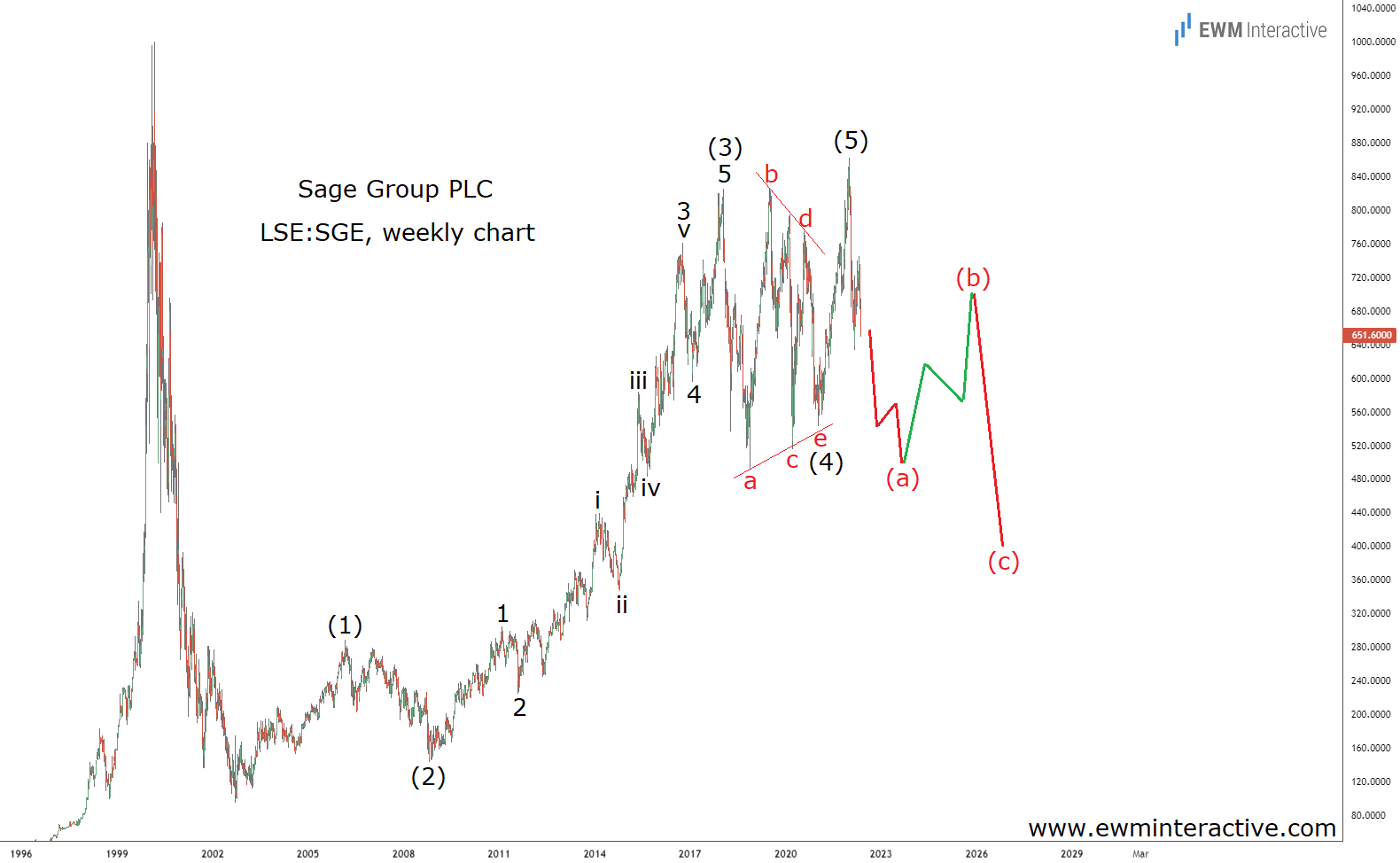Sage Group (LON:SGE), not to be mistaken for SAGE Therapeutics (NASDAQ:SAGE), is a business management solutions provider, headquartered in the UK.
The company offers accounting, enterprise resource planning and payroll software, and operates in Europe and North America. SGE.L became public in 1989, just in time for the inflation of the Dot-com bubble and subsequent crash.
By the autumn of 2002, the stock was back where it was in 1998 after falling 90% from its 2000 peak. 22 years later now, Sage Group stock has yet to retake its bubble top.
A cautionary tale for those who think that the price you pay doesn’t matter in the long term, since the markets always eventually recover.
What interests us now, though, is precisely the recovery from the Dot-com rubble. Over the past 20 years, Sage Group stock has managed to rise from as low as 96 to as high as 862 pence a share.
This translates into a nine-fold gain or a decent 11.6% compounded annually. The Elliott Wave structure of that uptrend, however, should worry the bulls.

As visible, the uptrend since 2002 is a textbook five-wave impulse pattern. We’ve labeled it (1)-(2)-(3)-(4)-(5), where two lower degrees of the trend can also be recognized within wave (3).
Wave (2) coincides with the 2008 recession, while wave (4) is a clear a-b-c-d-e triangle correction. If this count is correct, the push to 862 pence must be the fifth and final wave.
This means the current weakness to 633 pence so far is likely the beginning of the three-wave correction that follows every impulse. Corrections usually erase the entire fifth wave, so it makes sense to expect a drop to at least 540 pence.
Given Sage Group ‘s anemic growth rate and relatively high valuation, we wouldn’t be surprised if the bears drag the stock even lower. The corrective phase of the Elliott Wave cycle might take years to unfold. We’d rather watch from a safe distance as it does.
